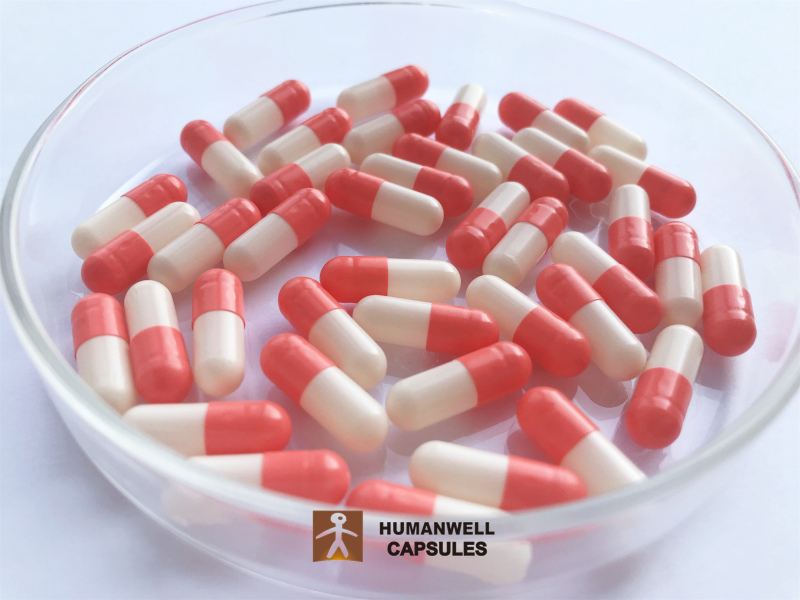How to Solve the Most Common Defects of Empty Vegetarian | Gelatin Capsule?
- Categories:Company News
- Author:
- Origin:
- Time of issue:2020-06-01 09:50
- Views:
(Summary description)When use the empty capsules to produce, please check the environmental conditions within the filling room. Ideal conditions are a temperature of 22°C ± 2° and a relative humidity of 40 to 50 percent. If conditions are outside these ranges, allow some time for the room and the materials within it to acclimate before you begin production. If defects occur, try using these methods to solove the most common defects of capsules:
How to Solve the Most Common Defects of Empty Vegetarian | Gelatin Capsule?
(Summary description)When use the empty capsules to produce, please check the environmental conditions within the filling room. Ideal conditions are a temperature of 22°C ± 2° and a relative humidity of 40 to 50 percent. If conditions are outside these ranges, allow some time for the room and the materials within it to acclimate before you begin production. If defects occur, try using these methods to solove the most common defects of capsules:
- Categories:Company News
- Author:
- Origin:
- Time of issue:2020-06-01 09:50
- Views:

When use the empty capsules to produce, please check the environmental conditions within the filling room. Ideal conditions are a temperature of 22°C ± 2° and a relative humidity of 40 to 50 percent. If conditions are outside these ranges, allow some time for the room and the materials within it to acclimate before you begin production. If defects occur, try using these methods to solove the most common defects of capsules:
Lumpy or misshapen capsules. If the capsules form lumps or are otherwise misshapen, check the conditions under which they were transported or stored. You should maintain empty capsules at a temperature between 15° and 30°C and a relative humidity between 40 and 65 percent. Avoid exposing empty capsules to a direct source of light or to heat. Don't transfer capsules suddenly from a high-temperature environment to a low-temperature one.
Improper rectification. If the capsules are not being oriented properly (cap up), first make sure no one is using a plastic container to transport the capsules or a plastic scoop to load the capsule filler. Plastic can cause an electrostatic charge to develop, hindering rectification. Use stainless steel containers and scoops instead. Also check the gate knee and adjust it as necessary. Verify that the stroke of the pushers, or fingers, is set properly according to the joined length of the shells. Also check that the raceway is in good condition.
Failure to separate. If the caps and bodies fail to separate, check the vacuum. On most capsule fillers, the gauge should read somewhere between 15 and 18 inches mercury. You may also need to adjust the gap between the machine's cap segments and body segments. Check the timing of the solenoid valve and how well the segments' holes align with the raceway fingers. Check the filter bag and clean it periodically.
Dented capsules. Dents can form on the dome of the cap and/or body for a variety of reasons. One cause is improper setup that leads to the machine applying excessive pressure. To determine the correct setting, manually lock 20 capsules together and measure their lengths. Next, find the mean value and adjust the machine to that value with the help of a tie rod.
Another reason for dented capsules is overfilling. To correct this, weigh 20 filled capsules. The average weight should not exceed the specified volume of the capsules you're using. If it does, consider using larger capsules.
Telescoping. This defect occurs when the cap and body misalign and the capsule body splits and a portion of it covers the cap. To eliminate this defect, make sure all the capsules are perfectly round. Also check the alignment of the cap and body bushings, or segments, using a gauge designed for that purpose. The environmental conditions in the filling room can also contribute to this problem. If you must stop the machine for more than 30 minutes, protect the capsule shells from direct exposure to the environment.
Popping. If the capsules open or elongate after filling, it's likely due to excessive locking pressure or overfilling. It's also possible that the locking mechanism is weak, but that's a defect rarely seen in capsules supplied by reputable manufacturers.
Brittleness. Check your storage conditions. When capsules lose moisture, often due to poor storage practices, they become brittle. The threshold is approximately 12.5 percent moisture. Anything less will likely lead to brittleness. Filled capsules that include a hygroscopic active or excipient can also cause brittleness. Capsules made from HPMC are less likely to become brittle.
- Everything You Should Know About Hard Gelatin Capsules 2024-03-28
- Do You Know What Advantages of Gelatin Capsules Are? 2024-03-19
- Congratulation! HumanCaps Selected As Back-Up Gold Seed Enterprise for Listing 2024-03-14
- Congratulation! Chairman of HumanwellCaps Selected as Hubei Industry Professor in 2023 2024-03-07
- Congratulation! HumanwellCaps Has Successfully Registered in EU 2024-02-29
Contact Us
Tel/WhatsApp: +86-18120439171
E-mail: info@humanwellcaps.com
Address: No.1269 chibi Ave, Chibi, Hubei Province, China

Copyright @2021 Hubei Humanwell pharmaceutical excipients Co., Ltd. All rights reserved. Hubei ICP No.19006649 SupportedIPV6
@2021 Hubei Humanwell pharmaceutical excipients Co., Ltd.
Hubei ICP No.19006649 SupportedIPV66









 +86-18120439171
+86-18120439171 +86-18120439171
+86-18120439171 Message
Message 